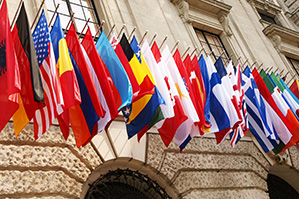The Convention on Combating Bribery of Foreign Public Officials in International Business Transaction (OECD Anti-Bribery Convention) came into effect in early 1999. We explore a recent OECD communication outlining the key provisions of the Convention, as well as highlighting the need for international cooperation.
The OECD and the fight against foreign bribery
The Organisation for Economic Cooperation and Development (OECD) is an intergovernmental organisation comprising 30 countries, which produces recommendations and binding instruments to promote economic growth between its members. Combating bribery is a key focus of the OECD, as bribery and corruption can damage a nation’s economic and social prosperity.
Parties to the OECD Anti-Bribery Convention (Convention) are specifically committed to combating the supply of bribes by their nationals (individuals and companies) to foreign public officials. The main objectives are to limit unfair competition in international business transactions and support development.
What impact does the OECD anti-bribery convention have?
As the Convention is not self-executing, an enforcing law is required. Each Party to the Convention has therefore made foreign bribery a criminal offence in their country, in accordance with the Convention guidelines and in line with its own legal tradition.
The Convention’s most significant provisions require Parties to:
- Criminalize bribery of foreign public officials in international business transactions.
- Set a definition of a foreign public official.
- Impose effective, proportionate and dissuasive sanctions for natural and legal persons.
- Establish territorial and nationality jurisdiction over the offence according to Parties jurisdiction.
- Establish the bribery of foreign public officials as a predicate offence to money laundering.
- Disallow economic and political considerations in investigating and prosecuting the offence.
- Set accounting and auditing standards for prohibiting the use of accounting documents for bribing.
- Facilitate mutual legal assistance and extradition.
- Provide for systematic monitoring.
International cooperation
Foreign bribery and corruption are inherently cross-border crimes, involving multiple jurisdictions. International cooperation is therefore essential to effective investigations and prosecutions, with two essential forms including extradition and mutual assistance.
Countries may adopt different types of legal frameworks to address the need for effective extradition and MLA in corruption cases, such as bilateral treaties or multilateral instruments. Domestic legislation has also been enacted that complements these treaty-based arrangements.
The OECD Anti-Bribery Convention and the United Nations Convention against Corruption (UNCAC) are complementary and mutually reinforcing. In its communication titled ‘The Impact of the OECD Anti-Bribery Convention’, the OECD states that “international cooperation should be facilitated in the framework of the United Nations Convention against Corruption (UNCAC).”



